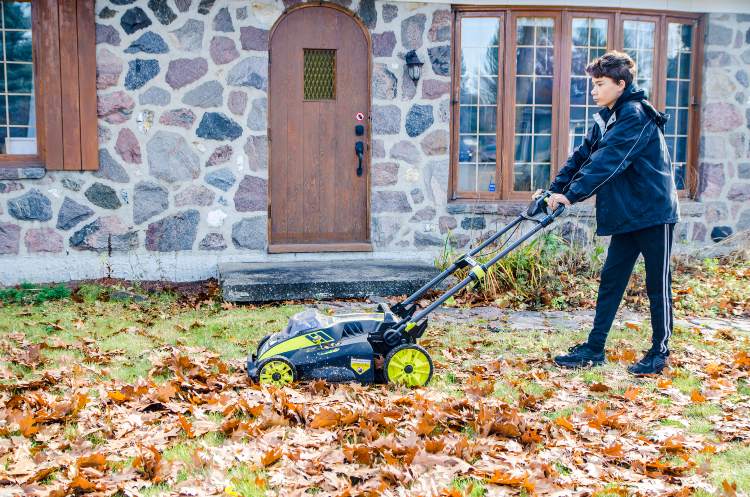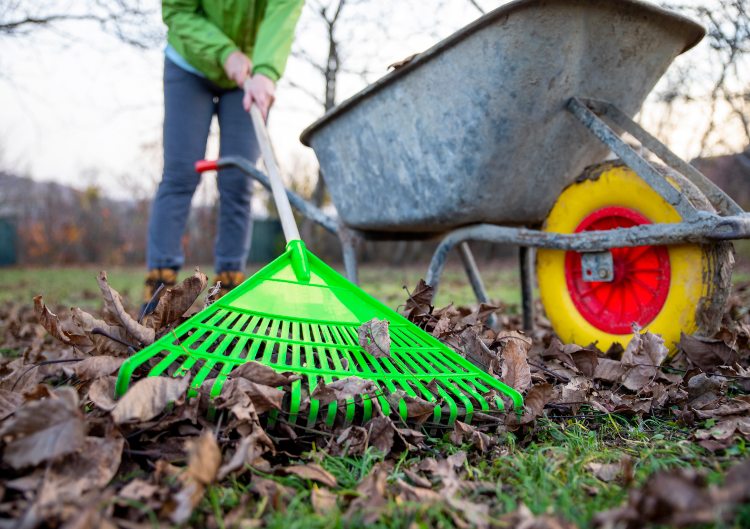Is It Better To Rake Or Mulch Your Leaves?

As autumn ushers in its colorful palette of falling leaves, homeowners are faced with the perennial question: is it better to rake or mulch these leaves? This debate is more than just a matter of personal preference; it encompasses considerations of lawn health, environmental impact, and the practicalities of yard maintenance. Let’s explore the nuances of this seasonal dilemma, examining the benefits and drawbacks of each method and the reasons why leaves can’t just stay on the lawn.
Why Do Leaves Always Have to Stay on the Lawn?
Leaves don’t necessarily have to stay on the lawn but leaving them where they fall without any intervention can lead to problems. A thick layer of undisturbed leaves can smother the grass, blocking sunlight and reducing water evaporation, which can lead to fungal diseases and an unhealthy lawn. Therefore, managing fallen leaves can be important for maintaining lawn health and aesthetics.
Is Raking Not as Effective as Mulching Leaves?
Raking and mulching serve different purposes and can be effective in their own right, depending on the specific needs of your lawn and your environmental goals. Raking provides a clean, tidy appearance and removes the physical barrier that leaves can form over the grass. Mulching, on the other hand, chops leaves into finer pieces, allowing them to decompose naturally on the lawn and recycle nutrients back into the soil.
What Tools Do I Need for Leaf Mulching?
For leaf mulching, the primary tool required is a mulching mower. These mowers are designed with blades that cut the leaves into very small pieces, allowing them to break down more quickly on the lawn. Some standard lawn mowers can be fitted with a special mulching blade if they don’t already come equipped with one. For larger properties or for those seeking more efficient methods, a stand-alone leaf mulcher might be a worthwhile investment.

Mulching Leaves – Pros and Cons
Pros:
- Soil Nutrition: Mulched leaves decompose and enrich the soil with nutrients, promoting a healthier lawn.
- Efficiency: Mulching with the right equipment can be faster and less labor-intensive than raking.
- Environmental Benefits: This method reduces waste and the need for chemical fertilizers.
Cons:
- Risk of Thatch: Incorrect mulching can contribute to thatch buildup, potentially harming lawn health.
- Not Suitable for All Situations: In cases of heavy leaf fall, mulching might overwhelm the grass.
- Equipment Requirements: Effective mulching requires a mulching mower or similar equipment.
Raking Leaves – Pros and Cons
Pros:
- Clean Appearance: Raking leaves ensures a tidy lawn, enhancing curb appeal.
- Disease Prevention: Removing leaves can help prevent lawn diseases by improving air circulation and light exposure.
- Versatility: Raked leaves can be composted, used as garden mulch, or disposed of responsibly.
Cons:
- Labor Intensive: Raking is physically demanding and time-consuming, especially for large areas.
- Environmental Impact: Disposing of leaves in bags contributes to landfill waste and methane production.
- Potential for Overcleaning: Excessive raking can remove beneficial organisms and matter from the lawn ecosystem.
Conclusion
The choice between raking and mulching leaves depends on a variety of factors, including your lawn’s needs, your physical ability, environmental concerns, and personal preferences for your yard’s appearance. While mulching can offer significant benefits for soil health and is generally less labor-intensive, raking might be preferred for its immediate tidiness and versatility. Considering a mixed approach—mulching in moderation and raking when necessary—might be the most balanced strategy for maintaining a healthy and attractive lawn throughout the fall.
If you need help with your lawn, give Black’s Lawn & Junk a call! We have been in business for over 10 years, installing, renovating, and maintaining commercial and residential landscaping throughout Weber, Davis, and Box Elder Counties. We bring our expertise to every job we do, big or small. Whether you need help with your lawn fertilization, maintenance, sprinkler repair, landscaping, junk removal, or just have some questions, our professionals are ready to help you. Contact us today and let Black’s Lawn & Junk help give you the lawn of your dreams.
